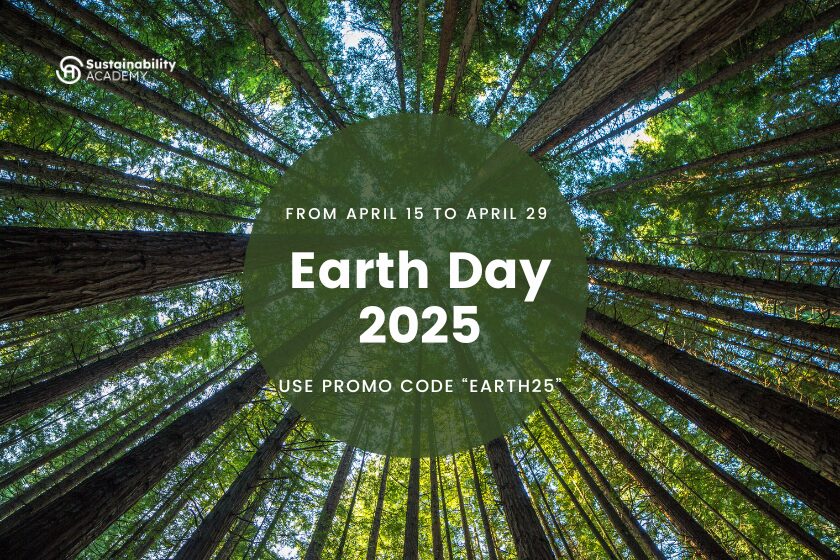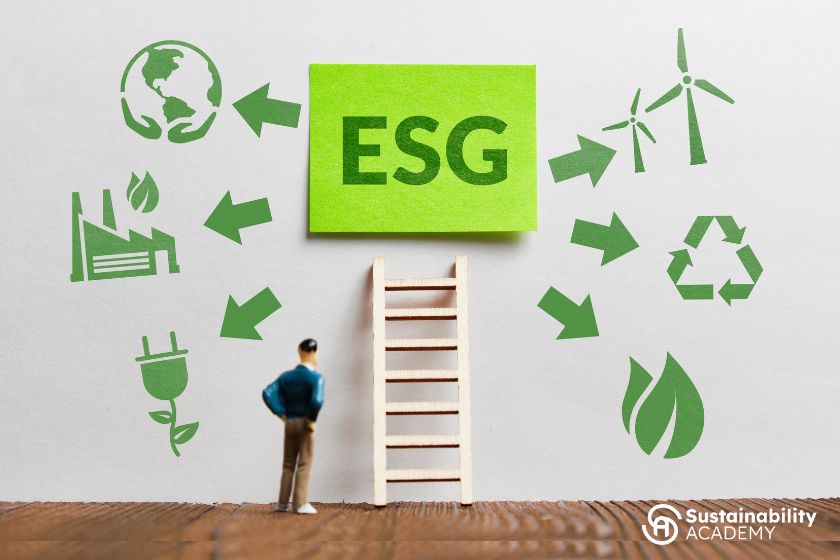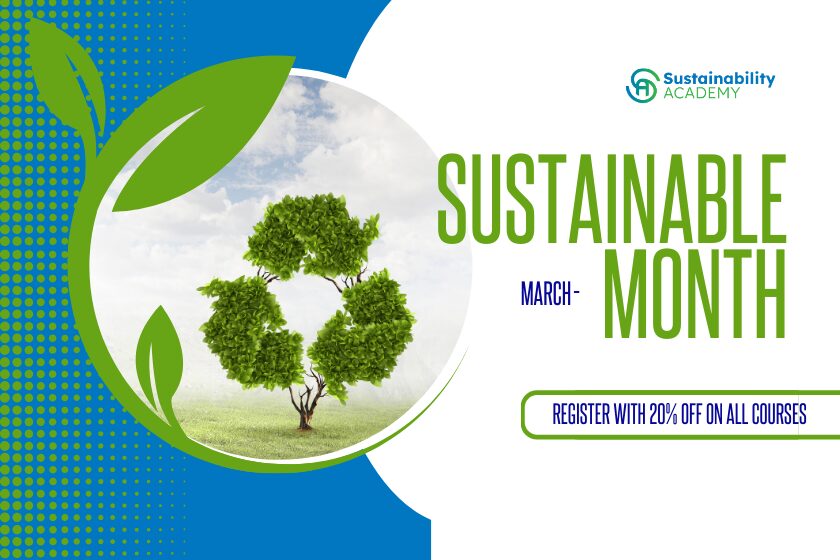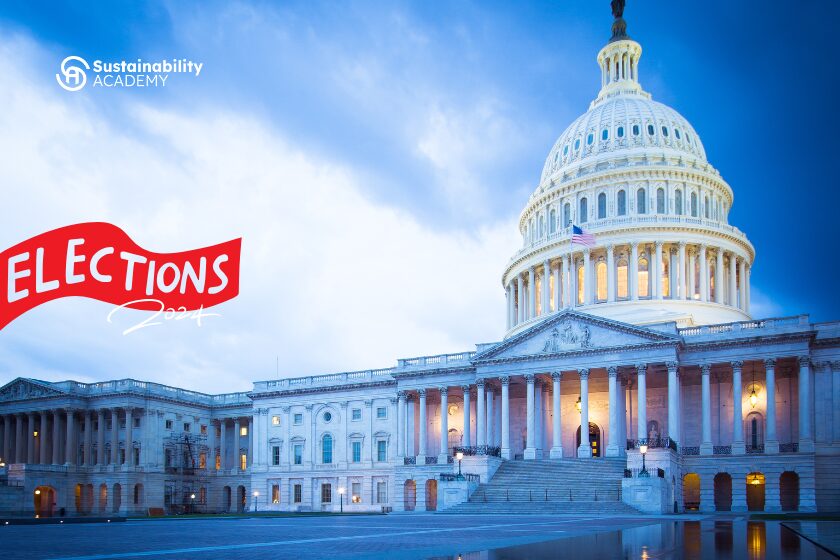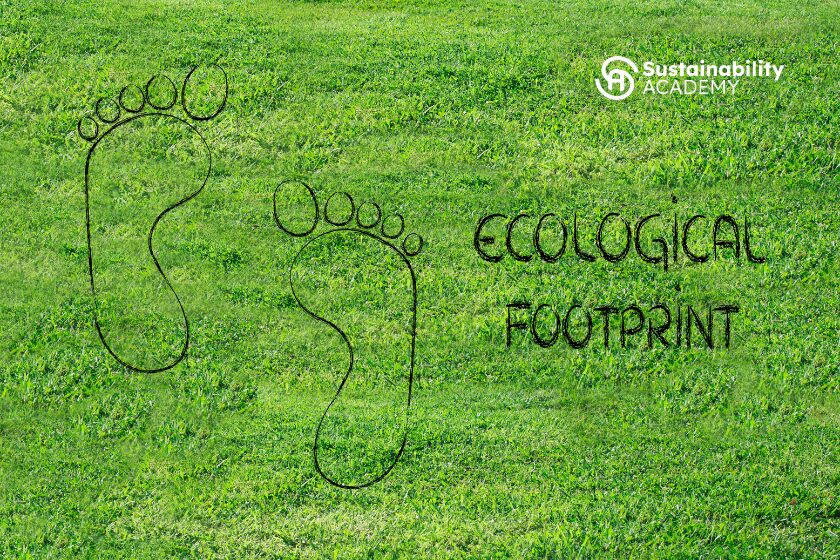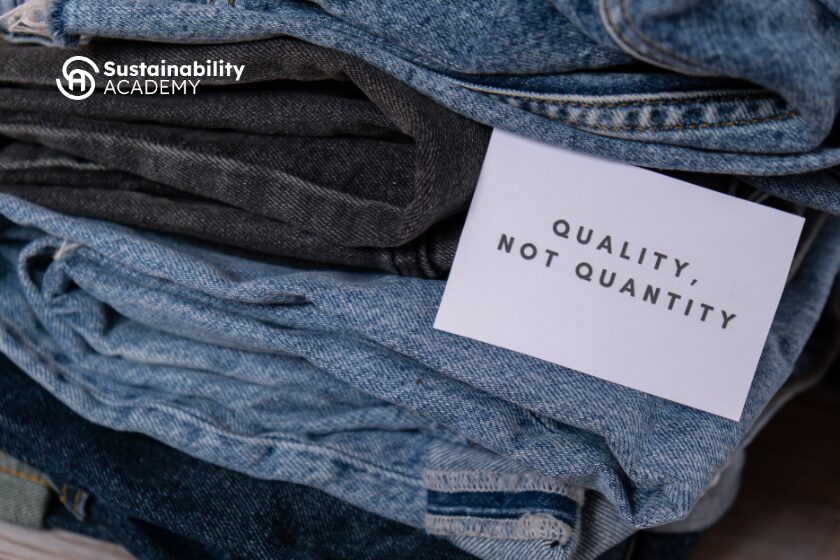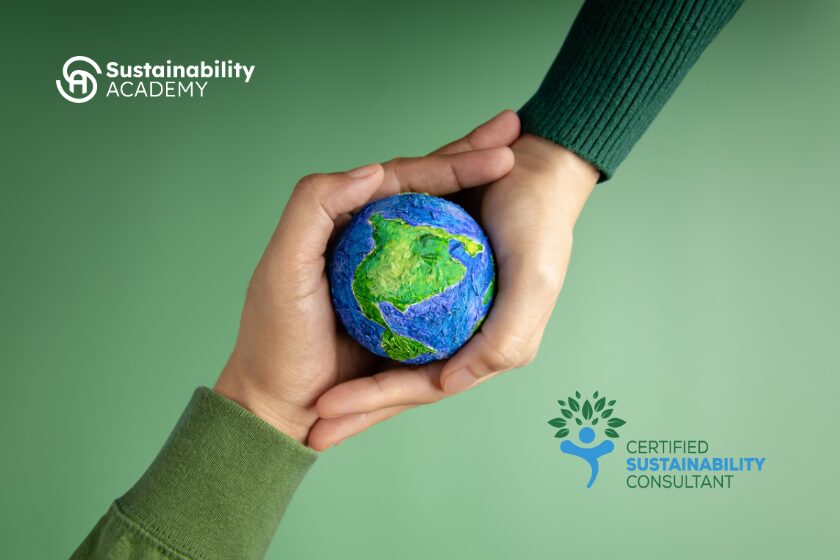Why Sustainability Skills Matter More Than Ever
Every year, Earth Day unites millions of people around the world in a shared mission: to protect our planet. In 2025, that mission is more urgent than ever. This year’s official theme, “Our Power, Our Planet”, is a bold call to transition to renewable energy and accelerate global climate action.
It’s not just about policy shifts or new technologies—it’s about people. People with the knowledge, tools, and leadership skills to drive sustainable change across industries. That’s why this Earth Day, Sustainability Academy is empowering individuals and organizations with a 25% discount on all certified courses between April 15 and April 29, 2025. Use code EARTH25 at checkout to invest in your sustainability future.
Why “Our Power, Our Planet”?
Fossil fuels are the leading driver of global greenhouse gas emissions, responsible for nearly 75% of climate-related CO₂, according to the International Energy Agency. The path forward is clear: we must transition to renewable sources like solar, wind, and hydro, and we must do it now.
The 2025 Earth Day theme reflects this urgency. It reminds us that we have the power—through our choices, careers, and collective action—to protect the planet from irreversible damage.
The Climate Crisis Is Now — and It’s Escalating
From record-breaking wildfires to unprecedented floods, the effects of climate change are intensifying. The UN’s IPCC report has issued a “final warning”: if we don’t dramatically reduce emissions within this decade, we risk crossing tipping points that could make parts of the planet uninhabitable.
As Earth.org outlines, our biggest environmental problems today include loss of biodiversity, air and water pollution, and waste from plastic and overconsumption. Tackling these challenges will require skilled professionals who understand how to embed environmental, social, and governance (ESG) principles into policy and practice.
Earth Day Is a Call to Skill Up
What does Earth Day mean in the context of your career or organization? It means realizing that sustainability is not a side project—it’s a strategic priority. To meet climate targets and stay competitive, companies must invest in people who can lead ESG strategy, ensure regulatory compliance, and communicate impact transparently.
And yet, according to LinkedIn’s 2024 Global Green Skills Report, the demand for green skills is outpacing supply. There’s a widening gap between what companies need and the skills the workforce currently has.
This is where education steps in.
Learn to Lead: Earth Day Sale – 25% Off All Courses
From April 15 to 29, Sustainability Academy is offering a 25% cart-wide discount on all online, certified courses. Just use promo code EARTH25 at checkout.
Here are two featured programs that align perfectly with this year’s Earth Day theme:
🔹 Online Certificate on Sustainability (ESG) Reporting
In a world where greenwashing is not just a PR problem but a legal risk (as outlined in recent SEC guidelines and FTC Green Guide revisions), this course equips professionals with the skills to:
- Align with global reporting frameworks (e.g., GRI, TCFD, SASB)
- Build credible sustainability disclosures
- Improve ESG transparency for investors and regulators
It’s ideal for professionals in reporting, compliance, communications, and investor relations.
🔹 Certified Climate Resilient Officer
This course is designed for those ready to lead the climate resilience agenda inside their organization. As climate risks become operational risks, companies need strategies to:
- Assess physical and transitional climate risks
- Integrate climate adaptation into core business planning
- Build resilience across supply chains, facilities, and governance structures
Whether you’re in strategy, risk management, or sustainability leadership, this program is a must.
Why This Earth Day Is Different
Earth Day 2025 is not a checkbox. It’s a turning point. The stakes are higher, but so is our capacity to act.
Regulations like the EU Corporate Sustainability Reporting Directive (CSRD) are now requiring thousands of companies to disclose ESG performance. Meanwhile, investors are embedding ESG criteria into capital allocation decisions. Consumers are choosing brands aligned with their values.
If you’ve been waiting for the right time to upskill in ESG and climate leadership, this is it.
What You Can Do This Earth Day
Earth Day is about both personal reflection and professional responsibility. Here’s how you can make the most of it:
- Take a course to deepen your sustainability knowledge
- Encourage your team or company to pursue ESG training
- Share your learning journey on LinkedIn to inspire others
- Align your work with climate goals—and help your organization do the same
These steps may seem small, but multiplied across sectors and industries, they’re exactly what our planet needs.
Final Thought: Sustainability Is a Skillset
The climate crisis can feel overwhelming—but it’s also an invitation to grow. To learn. To lead. To reimagine how we do business and live on this planet.
This Earth Day, don’t just show support. Show up.
👉 Explore all certified courses
📅 Use code EARTH25 from April 15–29 to get 25% off any course
📚 Start your ESG education now—and help shape a world that thrives
Because a healthier planet needs smarter, more resilient leaders—and that starts with you.

